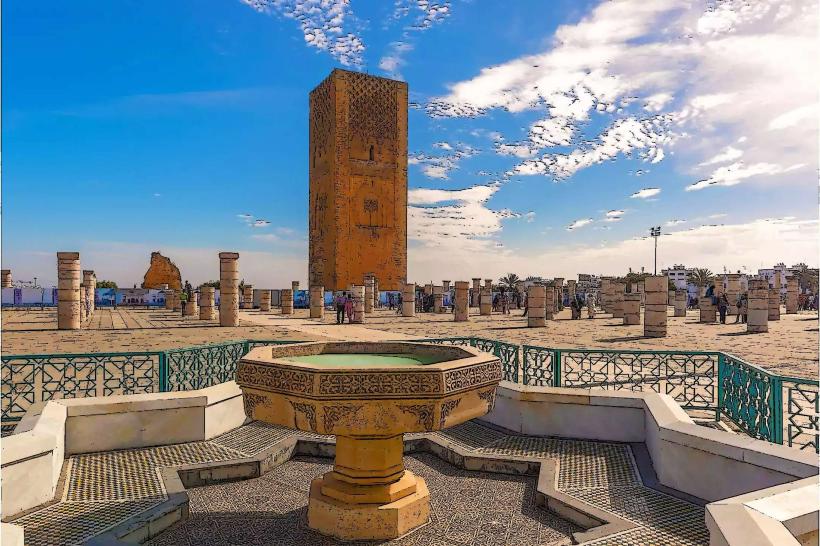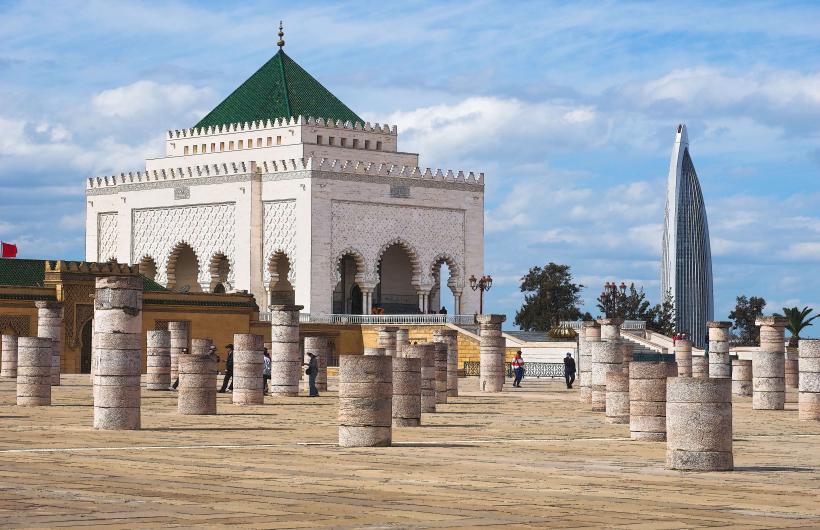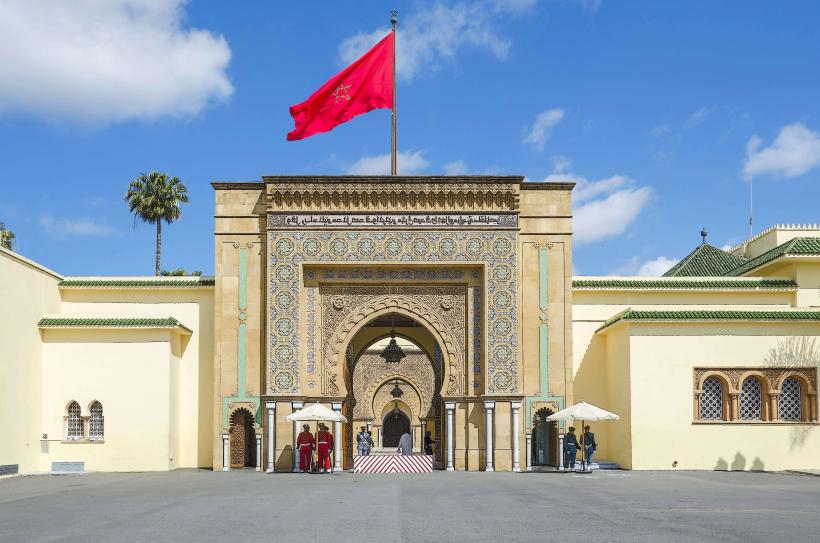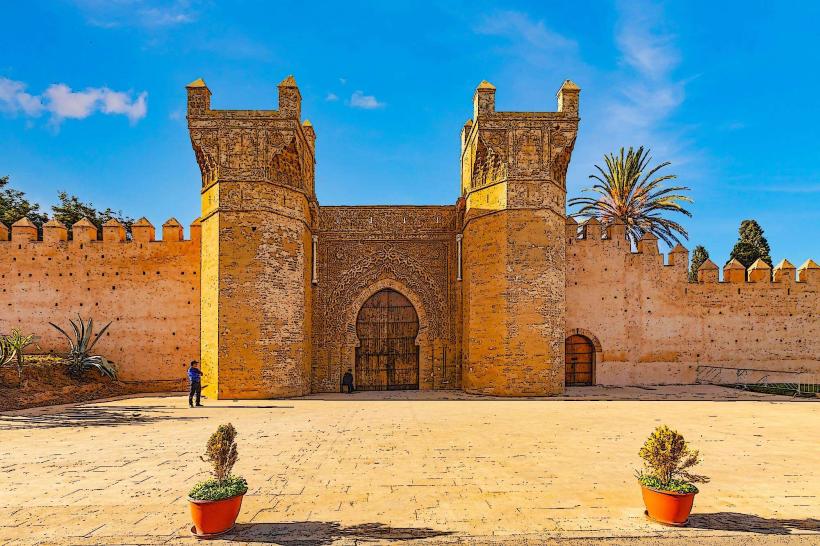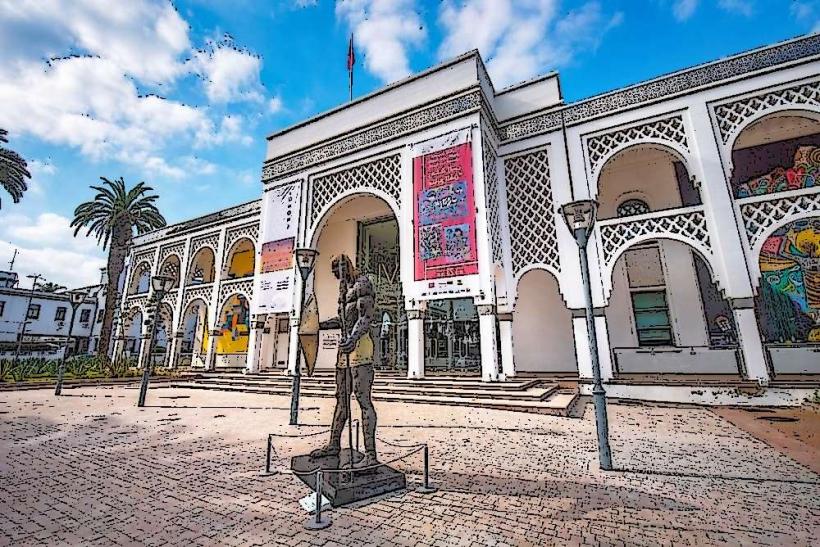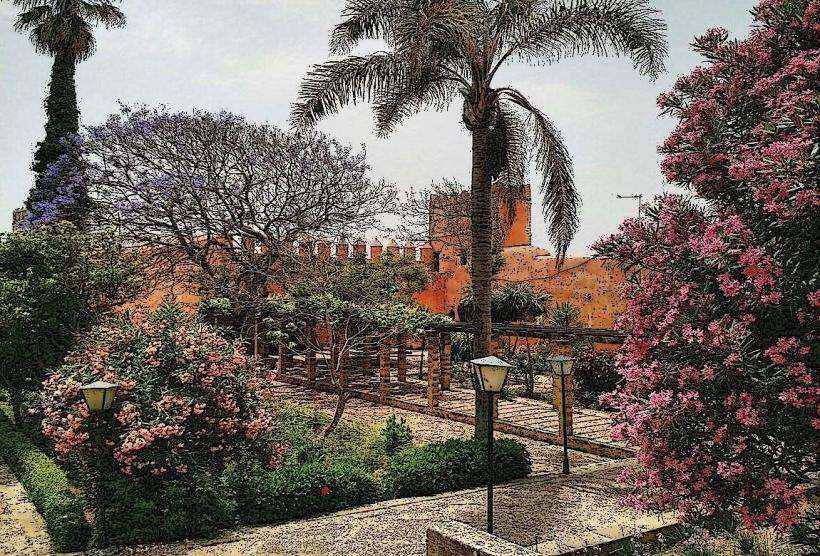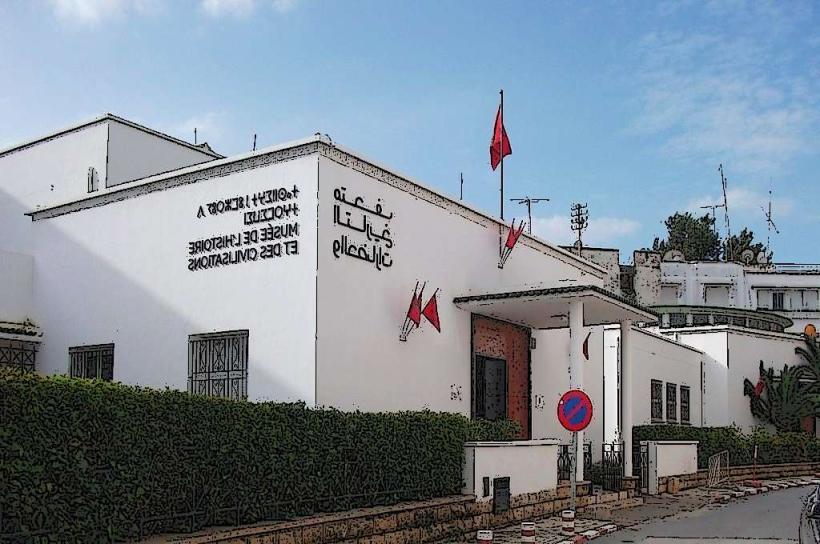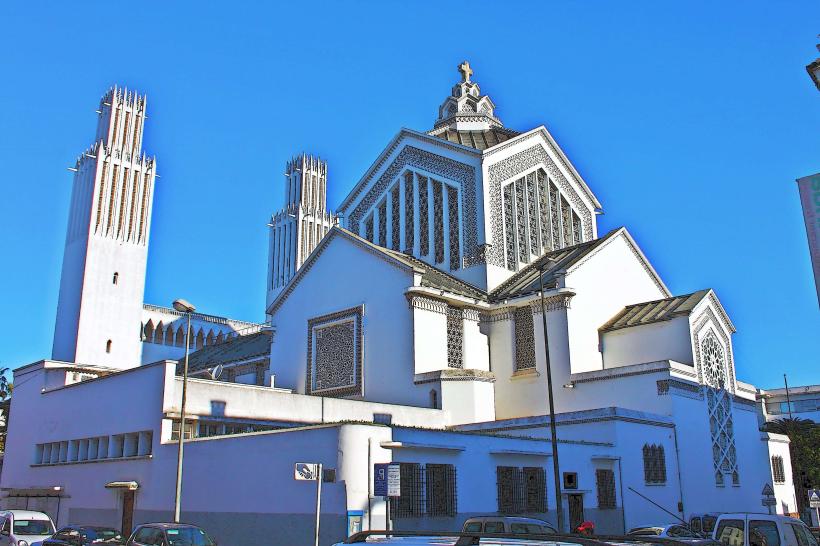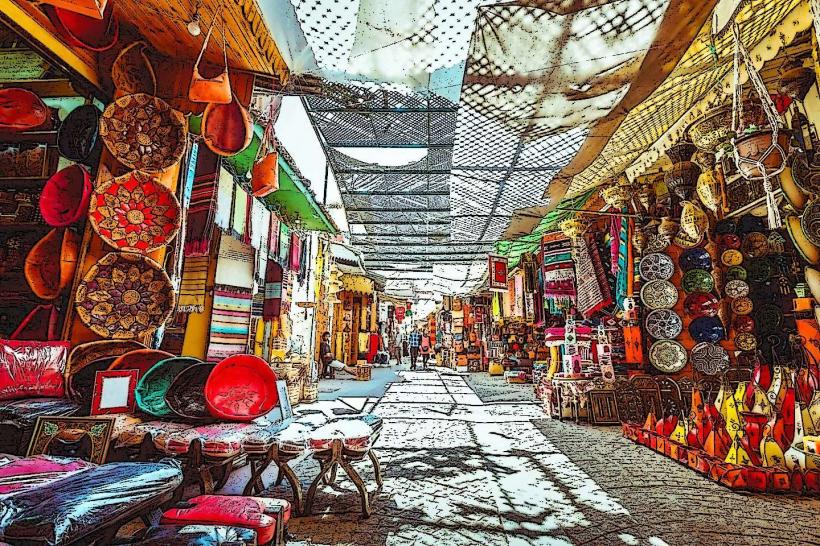Information
Landmark: Kasbah of the UdayasCity: Rabat City
Country: Morocco
Continent: Africa
Kasbah of the Udayas, Rabat City, Morocco, Africa
The Kasbah of the Udayas is a historic fortified complex situated in Rabat, Morocco, overlooking the Atlantic Ocean and the Bou Regreg River.
Visual Characteristics
The Kasbah features whitewashed walls with blue-painted doors and windows, characteristic of Andalusian architecture. Its ramparts are constructed from reddish-brown stone. The central street, Rue Jamaa, is narrow and winding, lined with small houses. The Andalusian Garden within the Kasbah presents a structured layout with fountains and diverse plant species.
Location & Access Logistics
The Kasbah is located at the mouth of the Bou Regreg River in Rabat. It is accessible via the main city streets. From Rabat's city center (e.g., Hassan Tower), it is approximately 2km West. Parking is available in designated lots outside the Kasbah walls, though spaces can be limited. Public transport options include local buses that stop near the Kasbah entrance. Taxis are also readily available.
Historical & Ecological Origin
The Kasbah was originally built in the 12th century by the Almohad Caliph Abd al-Mu'min as a ribat (fortified monastery). It was later expanded and occupied by the Udayas tribe in the 17th century, giving it its current name. The site is situated on a natural promontory overlooking the coast.
Key Highlights & Activities
Visitors can walk along the ramparts for views of the ocean and the river. Exploration of the narrow streets and observation of the traditional architecture are primary activities. The Andalusian Garden offers a tranquil space for rest. The Udayas Museum, housed in a former palace, displays Moroccan arts and crafts. Observing the confluence of the river and the ocean from the Kasbah's vantage points is a key activity.
Infrastructure & Amenities
Restrooms are available within the Kasbah, particularly near the museum and garden areas. Some shaded areas are present within the Andalusian Garden and under awnings along the main street. Cell phone signal (4G/5G) is generally good within the Kasbah. Food vendors and small cafes are located both inside and immediately outside the Kasbah walls.
Best Time to Visit
For optimal lighting for photography, early morning or late afternoon is recommended. The best months for weather are typically April to June and September to October, offering mild temperatures. High tide can enhance the visual drama of the river mouth.
Facts & Legends
A local legend suggests that the Kasbah was once a base for Barbary pirates. The distinctive blue paint on the doors and windows is said to ward off evil spirits, a tradition common in many coastal Moroccan communities.
Nearby Landmarks
- Hassan Tower (1.5km East)
- Mausoleum of Mohammed V (1.8km East)
- Chellah Necropolis (2.5km Southeast)
- Royal Palace of Rabat (3km South)
- Moroccan Parliament (2.2km East)

